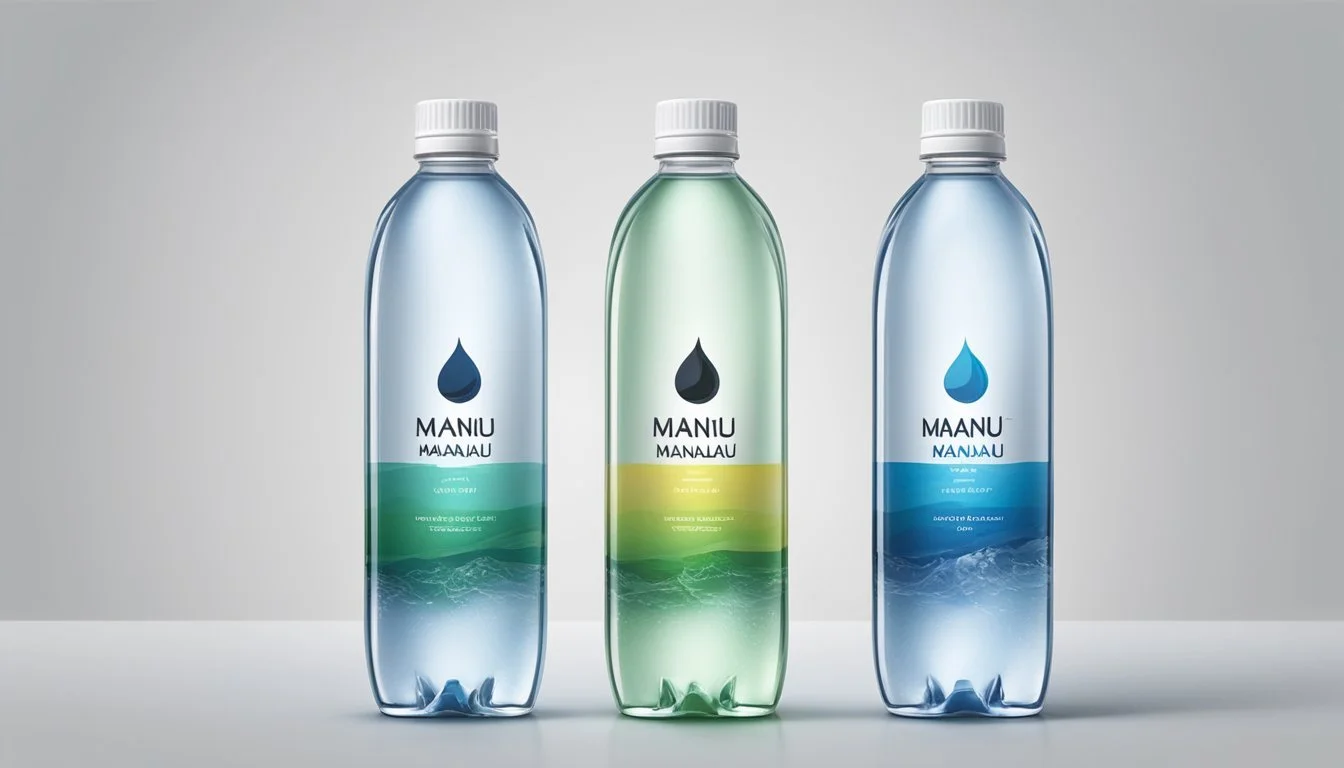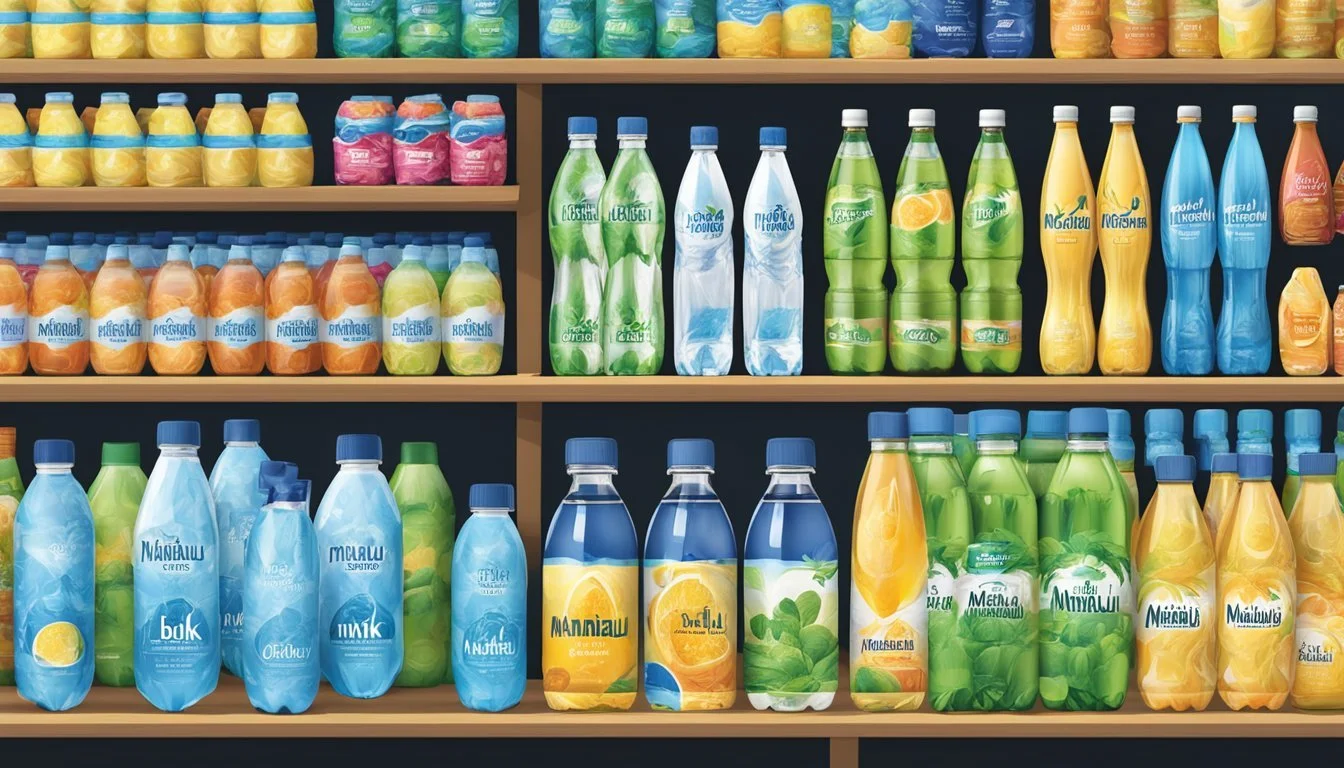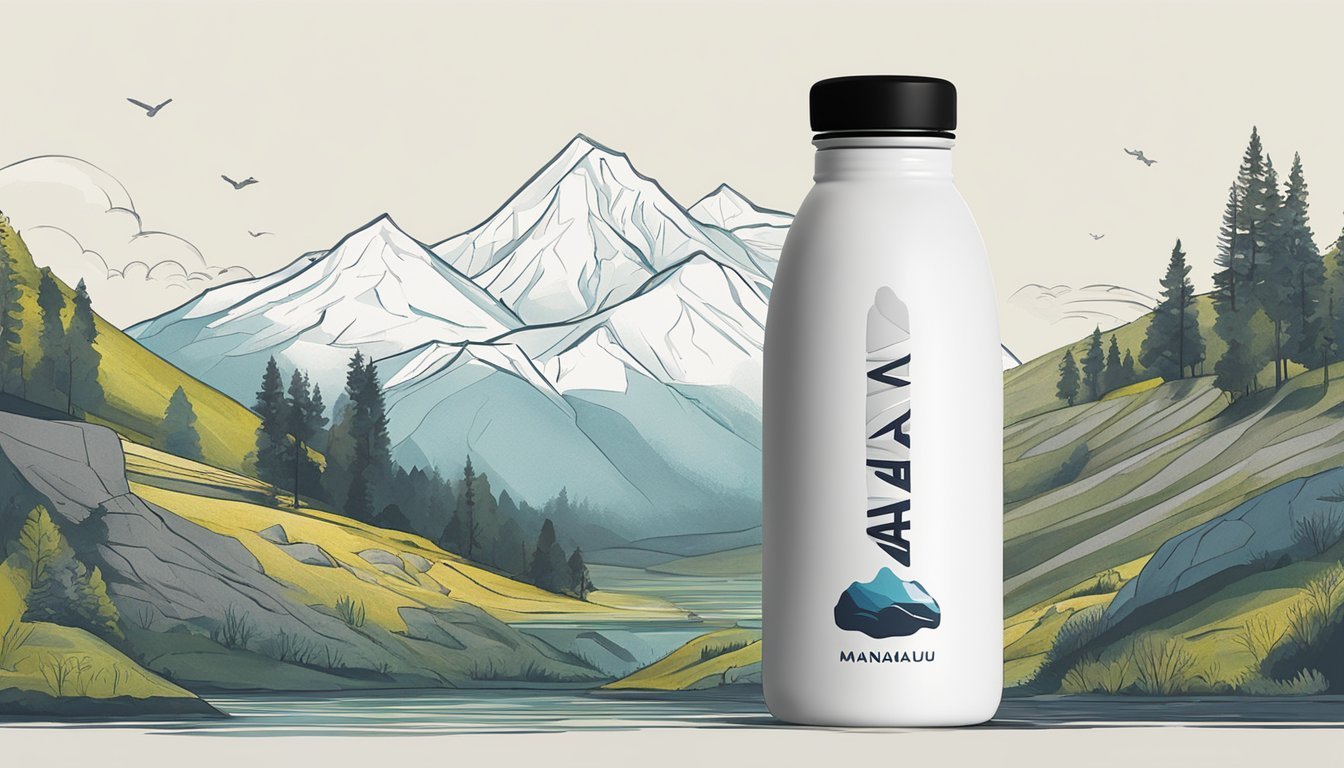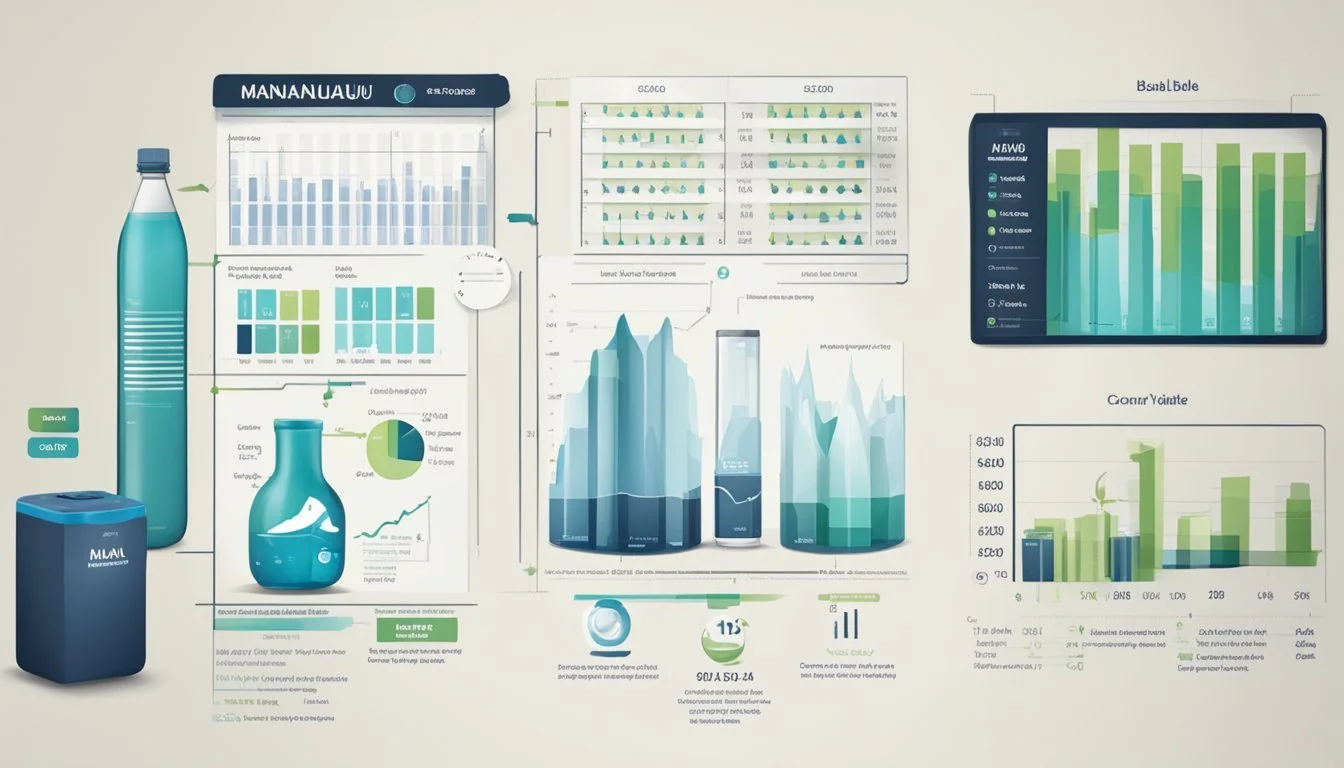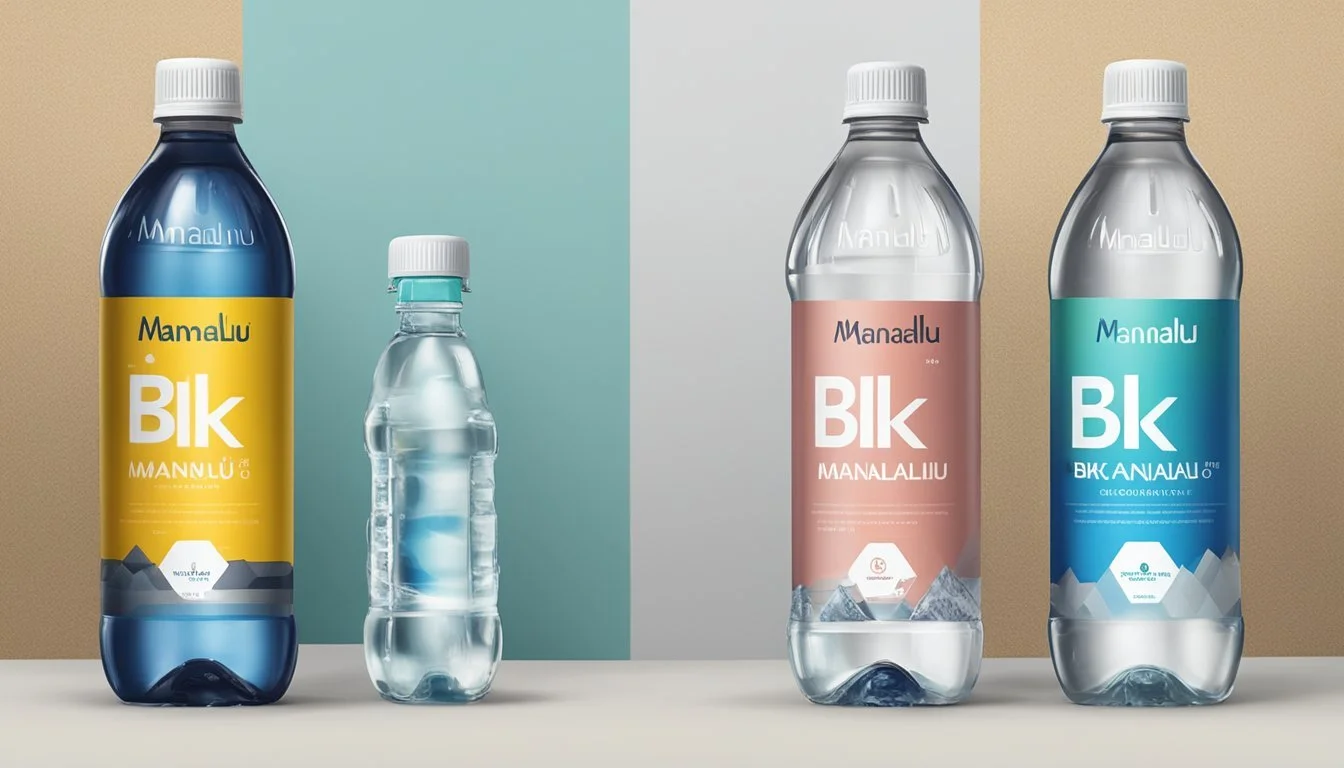Mananalu vs. Blk
Comparing Two Premium Bottled Waters
In the crowded market of bottled water, two names have been making waves: Mananalu and blk. Water. Mananalu, founded by actor Jason Momoa, offers purified water in 100% recyclable aluminum cans, aiming to reduce the environmental impact of single-use plastic bottles. On the other hand, blk. Water stands out with its deep, obsidian hue derived from fulvic trace minerals, promising not only hydration but also a range of potential health benefits.
Both brands are shaking up traditional expectations of bottled water. Mananalu appeals to the eco-conscious consumer who values sustainability, while blk. Water attracts those intrigued by its unique composition and the supposed advantages of fulvic acid. Choosing between Mananalu and blk. can come down to personal priorities—whether it's environmental stewardship or potential health perks.
Whether you're swayed by Mananalu's mission to eliminate plastic waste or blk. Water's bold, unconventional approach to hydration, each brand offers something distinct. The ultimate decision rests on what you value more—sustainability or the promise of enhanced wellness.
Market Overview of Bottled Water Brands
The bottled water market is rapidly evolving, driven by environmental concerns and the search for alternatives to single-use plastics. Key trends are shaping how brands approach packaging and sustainability.
Rising Concerns Over Plastic Waste
The environmental impact of single-use plastic bottles has become a significant concern. Plastic pollution accumulates in oceans and landfills, leading to detrimental effects on wildlife and ecosystems.
Brands like Jason Momoa's Mananalu aim to tackle this issue. Mananalu uses 100% recyclable aluminum cans, reducing plastic waste. Brita Premium Purified Water has adopted similar packaging to combat the $20 billion bottled water industry's reliance on plastic.
Public pressure and regulatory measures have also pushed companies to reconsider their packaging strategies, spurring innovation in sustainable materials.
Alternatives to Single-Use Plastic Bottles
To address plastic waste, companies are exploring various sustainable alternatives. Aluminum is gaining popularity due to its high recyclability and durability. Consumers can find Mananalu and Brita waters in aluminum bottles, which are more eco-friendly and can be refilled and recycled efficiently.
Other brands are experimenting with recycled plastics, such as using recycled corrugated boxes for shipping and packing. Some are even investigating biodegradable materials to further minimize environmental impacts.
By offering diverse packaging options, these brands provide consumers sustainable choices, encouraging more responsible consumption and waste management practices.
Mananalu Water's Brand Profile
Mananalu Water, founded by actor Jason Momoa, stands out for its commitment to sustainability and its unique approach to combating plastic waste. The brand emphasizes its environmental mission, using innovative practices to provide eco-friendly bottled water.
Jason Momoa and the Vision Behind Mananalu
Actor Jason Momoa launched Mananalu in response to the overwhelming plastic pollution affecting oceans and the planet. Leveraging his Aquaman persona, he created a brand dedicated to reducing single-use plastics.
Momoa’s vision extends beyond just selling water. He aims to inspire change and promote environmental responsibility. His star power and passion for the environment help attract attention to Mananalu and its goals.
Mananalu's Sustainability Mission
Mananalu’s mission centers around eliminating single-use plastics through its aluminum-bottled water. The brand promotes using infinitely recyclable aluminum to mitigate plastic waste.
Mananalu partners with Repurpose Global to offset plastic waste, achieving climate and carbon neutrality. Their "Drink One, Remove One" initiative means for each bottle sold, an equivalent amount of plastic is removed from the environment, amplifying their positive impact.
The Advantages of Aluminum Packaging
Aluminum packaging offers substantial benefits over plastic, particularly in terms of recyclability and environmental impact. Additionally, aluminum containers provide practical advantages such as resealability, making them a versatile choice for bottled water.
Aluminum vs. Plastic: A Comparative Analysis
Recyclability stands out as a primary advantage of aluminum. Nearly 75% of all aluminum ever produced is still in use today. This is because aluminum can be infinitely recycled without losing quality. This repeated recyclability reduces the need for new raw materials and minimizes environmental impact.
Plastic, on the other hand, degrades with each recycling process and is often downcycled into lower-quality products. As a result, a significant portion of plastic waste ends up in landfills and oceans, contributing to pollution. By choosing aluminum packaging, companies can substantially reduce their carbon footprint and promote a circular economy.
Resealable and Infinitely Recyclable Options
Aluminum bottles often come with resealable caps, offering consumers a practical solution for on-the-go hydration. This feature enhances the user experience by allowing the bottle to be conveniently reused throughout the day.
Refillable aluminum bottles also contribute to sustainability. These bottles are designed for multiple uses before recycling, reducing the frequency with which consumers need to purchase new containers.
Additionally, their infinite recyclability means once they reach the end of their lifespan, they can be recycled into new containers without any loss in material quality. This efficiency makes aluminum a superior alternative to plastic, which faces significant recycling constraints and environmental challenges.
Product Offerings and Varieties
This section compares the main flavors, ingredients, and product variants offered by Mananalu and Blk to help consumers make an informed choice between the two bottled water brands.
Mananalu vs. Blk: Flavor and Ingredient Comparison
Mananalu offers purified water packaged in 100% recyclable aluminum cans. The brand emphasizes its environmental mission, making it an attractive choice for eco-conscious consumers. Mananalu's water is purified but does not typically have added flavors or electrolytes, focusing instead on sustainability and hydration.
Blk takes a different approach by infusing its water with fulvic minerals, giving it a distinctive black color and a unique taste. Blk water contains natural electrolytes like calcium, magnesium, and sodium, which may appeal to those seeking enhanced hydration and mineral benefits. This infusion also leads to a mildly earthy flavor, which sets it apart from other bottled waters.
Variants and SKUs Offered by Both Brands
Mananalu offers a variety of SKUs mainly centered around still water in aluminum cans. They focus on single sizes and multipacks, with their best-selling 22-ounce format being particularly popular. Mananalu has also partnered with stores like Whole Foods Market to expand its availability.
Blk, on the other hand, provides a broader range of bottle sizes and types. They offer still water, flavored variants, and even specialty versions aimed at fitness enthusiasts. The brand's product line includes various SKUs such as single-serving bottles, multipacks, and larger bulk options, catering to different consumer needs.
While both brands offer unique qualities, Mananalu highlights sustainability, whereas Blk emphasizes the added benefits of minerals and flavor variety.
Purification Processes and Water Sources
Mananalu and Blk use distinct methods and sources to deliver what they claim to be superior bottled water. This impacts not only the taste and quality but also the sustainability and health benefits.
Reverse Osmosis and Other Purification Methods
Mananalu employs reverse osmosis as its primary purification method. This technique effectively removes impurities by pushing water through a semi-permeable membrane, eliminating contaminants such as bacteria, viruses, and chemicals.
In addition to reverse osmosis, Mananalu enhances the water by triple-filtering and adding electrolytes like sodium, magnesium, and calcium for improved taste and hydration benefits. The water is then packaged in aluminum bottles, which are not only more sustainable but also prevent light exposure, preserving the water's quality.
Blk, on the other hand, uses a different purification process. This brand infuses its water with fulvic trace minerals, derived from plant deposits. These minerals give Blk its distinctive black color. The purification method for Blk primarily focuses on maintaining the natural benefits of these minerals, which are said to improve hydration and nutrient absorption.
Origin and Source Tracking
Mananalu's water typically originates from groundwater or municipal sources. Depending on the location, the source water undergoes significant treatment to ensure its purity. By sourcing from diverse locations, Mananalu can offer a consistently high-quality product that meets stringent standards.
Mananalu ensures that the water is treated at facilities that often utilize renewable energy, making their process more environmentally friendly. This adds an additional layer of sustainability to their practice.
Blk sources its water from natural springs and other groundwater locations. The key feature of Blk's origin lies in its natural filtration through layers of organic matter, which enriches the water with fulvic minerals. This unique sourcing approach differentiates Blk, emphasizing its natural and mineral-rich profile.
By focusing on specific, high-quality sources and utilizing advanced purification techniques, both brands aim to provide distinct benefits to their consumers, prioritizing health and sustainability.
The Economic Considerations
This section addresses the price points and overall value of Mananalu and Blk bottled waters, taking into account cost analysis, shipping factors, and supply chain implications.
Cost Analysis Between Mananalu and Blk
When evaluating the cost of Mananalu and Blk, several factors come into play. Mananalu is known for its environmentally sustainable aluminum bottles, often priced at approximately $2-$3 per can.
In contrast, Blk, which markets its fulvic-enhanced mineral water, typically sells for approximately $2.50-$4 per bottle.
Mananalu: $2-$3 per can
Blk: $2.50-$4 per bottle
Supply chain dynamics also influence costs. Aluminum is more expensive to source and recycle than ordinary plastic, impacting Mananalu's pricing. On the other hand, Blk's unique selling proposition involves the infusion of fulvic acid which also raises production costs. Both brands highlight free shipping, but terms and availability may vary across the USA.
Assessing Value for Money
Value for money involves more than just the sticker price. Mananalu offers a strong environmental edge, promoting the elimination of single-use plastics with recyclable aluminum cans. This might attract eco-conscious consumers willing to pay a premium for sustainability.
Blk, with its distinctive black-colored water empowered by fulvic acid, markets itself as a health-enhancing product. Consumers searching for additional health benefits might find the higher price justified.
Both brands offer unique propositions beyond just hydration. Mananalu appeals to those prioritizing environmental impact, whereas Blk targets those looking for health supplements. Evaluating their offerings based on personal priorities—be it environmental sustainability or health benefits—will determine which provides better value.
Environmental and Social Responsibility
Both Mananalu and Blk aim to address environmental and social issues through sustainable practices and community initiatives. These efforts are anchored in reducing plastic waste and fostering partnerships with organizations that share their vision.
The Role of Partnerships in Environmental Impact
Mananalu, founded by Jason Momoa, is dedicated to eliminating single-use plastic water bottles.
Their water is packaged in 100% recyclable aluminum cans, significantly reducing plastic waste.
Partnerships are essential to their mission. For example, Mananalu has partnered with Hawaiian Airlines, allowing passengers to choose sustainable options.
Blk also emphasizes sustainability but focuses on their unique water formula enriched with fulvic minerals.
They collaborate with various environmental organizations to decrease ocean-bound waste and address the carbon footprint of production and distribution.
Community Engagement and Action
Mananalu actively engages with communities to raise awareness about plastic pollution.
Educational programs and local clean-up events are part of their strategy to inspire action. By integrating with the local culture, especially within Hawaiian communities, they ensure the message resonates deeply.
Blk fosters a sense of well-being in the communities they serve.
They support projects that promote sustainability and healthy living. Their initiatives often include sponsoring local events and partnering with health organizations to encourage eco-friendly practices among consumers.
Distribution Channels and Market Access
Both Mananalu and Blk water brands have extensive distribution channels and market access, making them easily accessible to consumers both online and offline. Their strategic placements in e-commerce platforms, physical retail stores, airlines, and food services play a crucial role in ensuring product availability.
E-Commerce Platforms and Physical Retail Availability
Mananalu water is available on Amazon and its official website, making it convenient for online shoppers. This gives Mananalu significant reach, as Amazon is one of the largest online marketplaces. Additionally, consumers can find Mananalu in grocery stores like Whole Foods, Safeway, Sprouts Market, and Foodland.
Blk water also leverages similar online platforms, including Amazon and its website. Blk is stocked in major grocery chains, giving it substantial physical store presence. Both brands aim to meet consumer demands by being readily accessible in prominent retail locations.
Strategic Placements: Airlines and Food Services
Mananalu has capitalized on strategic placements by partnering with Hawaiian Airlines to offer its aluminum-bottled water on flights. This increases brand visibility to a broad audience of travelers who value sustainability. Additionally, such alliances with airlines bolster Mananalu’s commitment to environmental stewardship by reducing single-use plastic consumption in high-volume settings.
Blk water, while focusing more on retail and e-commerce, also explores opportunities in food services and gyms. By placing products in locations where health-conscious consumers frequent, Blk enhances its market penetration. Partnerships with food services facilitate a wider audience reach, especially in urban areas and fitness centers prioritizing unique and functional water products.
Consumer Reviews and Brand Reputation
Mananalu and blk. Water have garnered attention for different reasons related to their environmental impact, branding, and hydration benefits. Each brand has distinctive consumer feedback and reputational highlights.
Analysis of Online Consumer Feedback
Mananalu, led by Jason Momoa, has received praise for its commitment to sustainability. Many consumers appreciate the use of 100% recyclable aluminum cans, aligning with a growing trend towards reducing plastic waste. Reviews commonly highlight the clean taste and the environmental mission behind the product.
Blk. Water, on the other hand, fascinates consumers with its unique black color, derived from fulvic trace minerals. Reviews are mixed; while some enjoy its purported health benefits and distinctive appearance, others are put off by the unusual color and taste. The brand's bold marketing appeals to a niche market seeking innovative hydration solutions.
Comparative Brand Image and Message
Mananalu leverages the celebrity influence of Jason Momoa, infusing the brand with the actor's passion for ocean preservation and sustainability. The brand's affiliation with Repurpose Global emphasizes its commitment to social responsibility, resonating well with environmentally conscious consumers.
Blk. Water stands out with its unconventional product, using its intriguing black hue to carve a niche in the bottled water market. The brand's messaging focuses on the functional benefits of fulvic acid, appealing to health enthusiasts. Despite this, the visual difference sometimes polarizes potential customers, creating a more specialized but loyal consumer base.
The contrasting approaches highlight how both brands cater to different demographic segments, each satisfying unique consumer needs and preferences regarding hydration and social impact.
Regulatory Compliance and Safety Standards
Mananalu and Blk bottled water brands are both committed to adhering to strict regulatory compliance and ensuring high safety standards. Their approaches can be better understood within the context of their adherence to national and international regulations, as well as their quality control measures.
Adherence to National and International Regulations
Mananalu complies with the Food and Drug Administration (FDA) regulations in the USA, ensuring that their bottled water meets all safety standards. In California, where regulations can be particularly stringent, Mananalu's operations also align with the state's environmental and safety guidelines.
Blk Water follows similar protocols, ensuring their products meet FDA standards and align with the guidelines set by the Environmental Protection Agency (EPA) for bottled water. They also adhere to necessary international regulations for markets outside the USA. Both companies prioritize sustainability by working towards reducing single-use plastics and promoting reusability, which aligns with global environmental goals.
Quality Control Measures
Mananalu employs rigorous quality control processes. Their water is purified through a multi-step filtration process, and regular testing ensures the absence of contaminants. Using 100% recyclable aluminum cans, they aim to reduce environmental impact while maintaining safety and quality.
Blk Water similarly places a strong emphasis on quality control. Their water is infused with trace minerals and electrolytes, and they use advanced filtration methods to ensure purity. Regular testing against contaminants and adherence to reusability standards are pivotal aspects of their quality control.
By focusing on strict regulatory compliance and detailed quality control, both Mananalu and Blk maintain high standards of safety and environmental responsibility.
More About Mananalu
Hawaiian Springs vs Mananalu: Which Bottled Water is Better?
Icelandic Glacial vs Mananalu: Which Bottled Water is Better?
Mananalu vs Cascade Mountain: Which Bottled Water is Better?
Mananalu vs Kirkland Signature: Which Bottled Water is Better?
Mananalu vs Richard's Rainwater: Which Bottled Water is Better?
Mananalu vs Talking Rain AQA: Which Bottled Water is Better?
Mananalu vs Whole Foods Italian Still Mineral water: Which Bottled Water is Better?
Mountain Valley Spring Water vs Mananalu: Which Bottled Water is Better?
Nestle Pure Life vs Mananalu: Which Bottled Water is Better?

